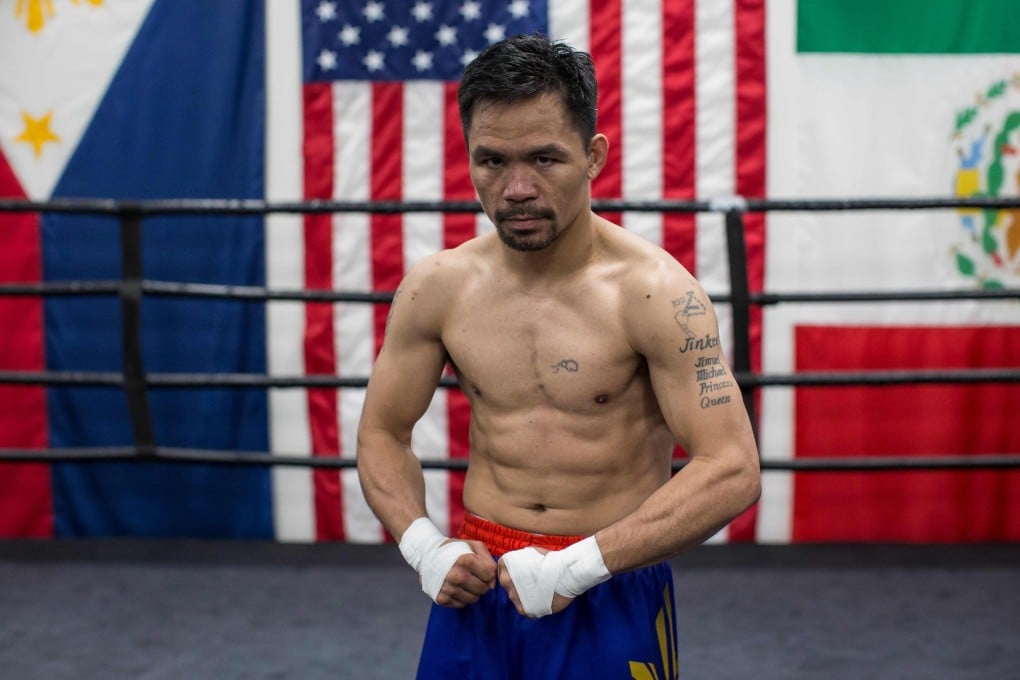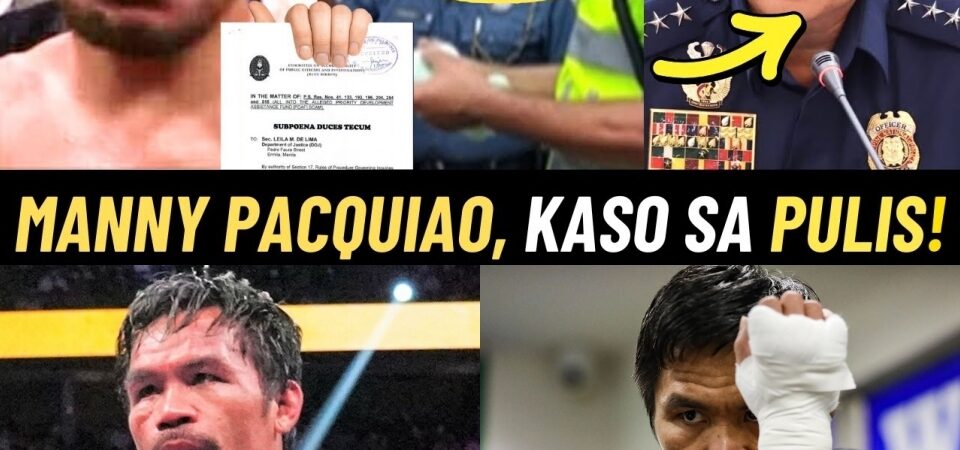In a dramatic turn of events that has captured the attention of both the media and the public, former boxing champion and senator Manny Pacquiao has filed a lawsuit against a police officer he alleges assaulted him during a recent altercation. The incident, which occurred at a private event, has sparked widespread outrage and raised serious questions about police conduct and accountability in the Philippines. Pacquiao’s decision to take legal action signifies not only his personal struggle for justice but also highlights broader issues related to the treatment of citizens by law enforcement.
Manny Pacquiao, a celebrated figure in the Philippines, has long been known for his tenacity inside the boxing ring as well as his political ambitions. However, this latest incident has thrust him into a legal battle that many see as a pivotal moment in his post-boxing career. Reports indicate that the confrontation began as a heated discussion about political issues, which quickly escalated into a physical altercation involving multiple individuals, including police officers. Pacquiao claims that he was unjustly targeted and physically assaulted by one officer in particular, leading him to seek legal redress.
The lawsuit, filed in a local court, alleges that the police officer acted with excessive force and violated Pacquiao’s rights as a citizen. In his statement, Pacquiao expressed his disappointment not only in the individual officer but also in the broader system that allows such abuses to occur. He emphasized that no one, regardless of their status or fame, should be subjected to violence, particularly by those sworn to protect the public. This incident has reignited discussions about police brutality in the Philippines, a topic that has gained significant traction in recent years amid ongoing concerns about human rights violations.

In his legal filings, Pacquiao is seeking damages for physical and emotional distress, as well as a public acknowledgment of the misconduct he experienced. The high-profile nature of the case has attracted considerable media attention, with journalists and commentators scrutinizing every detail. Pacquiao’s celebrity status adds a layer of complexity to the narrative, as many view him as a potential symbol of resistance against police abuse. His actions may encourage other victims of police violence to come forward and seek justice, paving the way for broader societal change.
The response from the police department has been defensive, with officials asserting that they are conducting an internal investigation into the incident. They have denied any wrongdoing on the part of the officer involved, claiming that the police were acting in accordance with their protocols. However, many citizens remain skeptical, fearing that the investigation may not yield any meaningful consequences. The public’s trust in law enforcement has been eroded by numerous reports of police misconduct, and this incident has only intensified calls for accountability and reform within the police force.
Supporters of Pacquiao have rallied behind him, using social media platforms to voice their outrage over the alleged assault. Hashtags calling for justice and accountability have trended on various social media sites, reflecting the public’s growing frustration with police violence. Pacquiao’s supporters view his lawsuit as a courageous stand against a system that often protects its own, regardless of the actions taken by individual officers. This grassroots support may prove instrumental in maintaining pressure on authorities to take the allegations seriously and to ensure that justice is served.
Meanwhile, Pacquiao’s political aspirations continue to loom in the background. As a former senator and presidential candidate, his decisions and actions carry significant weight in the political arena. By filing this lawsuit, he positions himself not only as a champion in the ring but also as a defender of civil rights and a voice for the marginalized. His actions may resonate with voters who are disillusioned with the current state of governance in the Philippines, potentially influencing his political future. Pacquiao’s commitment to fighting for justice could enhance his standing among constituents who prioritize human rights and accountability.
The timing of the lawsuit is particularly noteworthy, as it comes amid heightened scrutiny of police practices in the Philippines. Following numerous incidents of alleged police abuse, there has been a growing movement advocating for police reform. Activists and human rights organizations have been vocal in their calls for greater transparency, accountability, and oversight within law enforcement. Pacquiao’s lawsuit aligns with these broader efforts, potentially serving as a catalyst for change within the system.
Legal experts have weighed in on the potential implications of Pacquiao’s lawsuit, noting that high-profile cases often have the power to influence public opinion and policy. If successful, Pacquiao’s case could set a precedent for other victims of police violence, encouraging them to pursue legal action and seek redress for their grievances. Additionally, it could compel lawmakers to reconsider existing laws and regulations governing police conduct, perhaps leading to meaningful reforms aimed at preventing future abuses.
As the lawsuit unfolds, it is essential to recognize the potential impact on the broader societal landscape. The discussion surrounding police violence is not just about one individual’s experience; it reflects systemic issues that affect countless Filipinos. Pacquiao’s decision to speak out and seek justice may inspire others to do the same, fostering a culture of accountability and encouraging citizens to demand better treatment from law enforcement. This shift in societal attitudes could pave the way for a more just and equitable system.
In the coming weeks and months, the legal proceedings will likely attract continued media attention. Observers will be watching closely to see how the police department responds and whether any meaningful changes result from the incident. The courts will play a crucial role in determining the outcome of the lawsuit and potentially shaping the future of police accountability in the Philippines. If Pacquiao’s case is successful, it may embolden others to challenge abuses of power and hold law enforcement to a higher standard.
In conclusion, Manny Pacquiao’s decision to file a lawsuit against the police officer he alleges assaulted him represents a significant moment in the ongoing struggle for justice and accountability in the Philippines. This incident has not only highlighted the challenges faced by individuals at the hands of law enforcement but has also sparked a broader conversation about police conduct and human rights. As the case progresses, it will be essential to monitor its implications for both Pacquiao’s political future and the larger movement advocating for systemic change within the law enforcement community. Whether in the ring or the courtroom, Pacquiao’s fight for justice could resonate far beyond his individual circumstances, potentially inspiring a generation to stand up against injustice and demand accountability.



